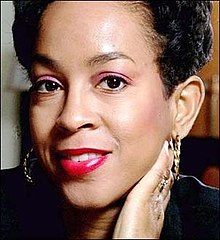Blackness in Mental Health Today
The 2020 Black Lives Matter protests that have followed the killings of George Floyd and Breonna Taylor, have shed a heavy light on the problem of racial inequality in America. While racial inequality is by no means a new issue throughout America, recent attention to this undeniable problem has highlighted the mental health problems within the Black community. Due to the stigmas surrounding mental health, specifically for Black Americans, many have difficulty recognizing the signs and symptoms of mental health conditions like anxiety and depression, which further contributes to the unmet mental health needs of minority populations.

https://www.mhanational.org/issues/black-and-african-american-communities-and-mental-health
According to the American Psychiatric Association, only one in three African Americans who need mental health care receive it. Though extremely disheartening, this statistic is not new news. These racial disparities within the mental health system have always been apparent. Despite the disregard that the Black community has generally been faced with in respect to mental health care and treatment, there have been a number of influential individuals who have devoted their lives to address the impact of racism within the system of mental health.
One woman specifically, Bebe Moore Campbell, made it her mission to bring attention to the nuances of being Black with a mental illness.
 Who She Was
Who She Was
Campbell was an American author of three New York Times bestsellers, a journalist, teacher, and mother. In 2003, she shifted her focus to the subject of mental health with a children’s book, written about a child living with her mother who had a mental illness, and her first play, “Even with the Madness”, which centered around mental illness and the family. Her many works sought to make Black people a typical subject within popular fiction, and explore the relationship between Black and white families.
The New York Times notes that a major appeal of Campbell’s work was the crossover interest of her novels, which were read by Black and white people alike. She aimed to represent Black individuals, specifically women, as ambitious and successful. She saw the inequality in America and utilized her strong platform as a successful author to attempt to remove the stigmas surrounding minority communities, especially in mental health.
Campbell was extremely outspoken for groups that she felt were victimized in society. She felt especially connected to those who were Black and dealing with mental health difficulties, because of the experiences of a close relative of her own. In an NPR Morning Edition commentary, she discussed the situation with her relative and stated: “The word “crazy” relegates people to a world of semi-human. (Her) relative didn’t want to live there. No one does.”
What She Did
In addition to her multiple plays, articles, novels, and children’s books, Campbell became a founding member of the National Alliance on Mental Illness-Inglewood, today called NAMI Urban Los Angeles. NAMI is the nation’s largest grassroots mental health organization dedicated to educating, advocating, supporting, and building better lives for the millions of individuals and families affected by mental illness. Campbell worked to provide mental health information through a collection of book signings and talks targeted toward encouraging community residents to get mental health checkups.
She discussed in one interview that stigma is the reason that people with mental health problems don’t seek treatment or take their medication.
“In a race-conscious society, some don’t want to be perceived as having yet another deficit.”
Campbell not only worked to support Black individuals in getting mental health treatment, but acknowledged and sympathized with the fact that being part of a minority largely exacerbates the difficulty of having any type of mental illness.
[Related: Bebe Moore Campbell Was the Champion for Mental Health We Need Right Now]
Mental Health America details a number of the barriers to care that the African American population faces when it comes to mental health services:
- Stigma associated with mental illness
- Distrust of the health care system
- Lack of providers from diverse racial/ethnic backgrounds
- Lack of culturally competent providers
- Lack of insurance, underinsurance
These barriers are only a few of the many that Campbell witnessed during her time working in mental health advocacy. An important aspect of Blackness and mental health that she addressed is the fact that racism is trauma. That being said, aside from the actual mental illnesses many minorities face, every person of color inevitability deals with the trauma that coincides with racism.
In Campbell’s novel, “Brothers and Sisters,” she wrote: “My color is my joy and not my burden.”
Campbell served as a beacon of hope for the Black community. She did not try to conceal or neglect the multitude of problems Black individuals face; she brought them to light. She celebrated Blackness and asserted hope about the future of American race relations.
Her Legacy Today
Campbell died of complications from a battle with brain cancer in November 2006. In 2008, the U.S. House of Representative designated July as Bebe Moore Campbell National Minority Mental Health Awareness Month in her honor to enhance public awareness of mental illness among minorities.
Campbell will forever be remembered as an integral part of the fight for justice for Black Americans in the mental health system. Her legacy is a bountiful source of hope for America’s elimination of the stigmas surrounding mental health.
“It’s not shameful to have a mental illness. Get treatment. Recovery is possible.”
– Bebe Moore Campbell

